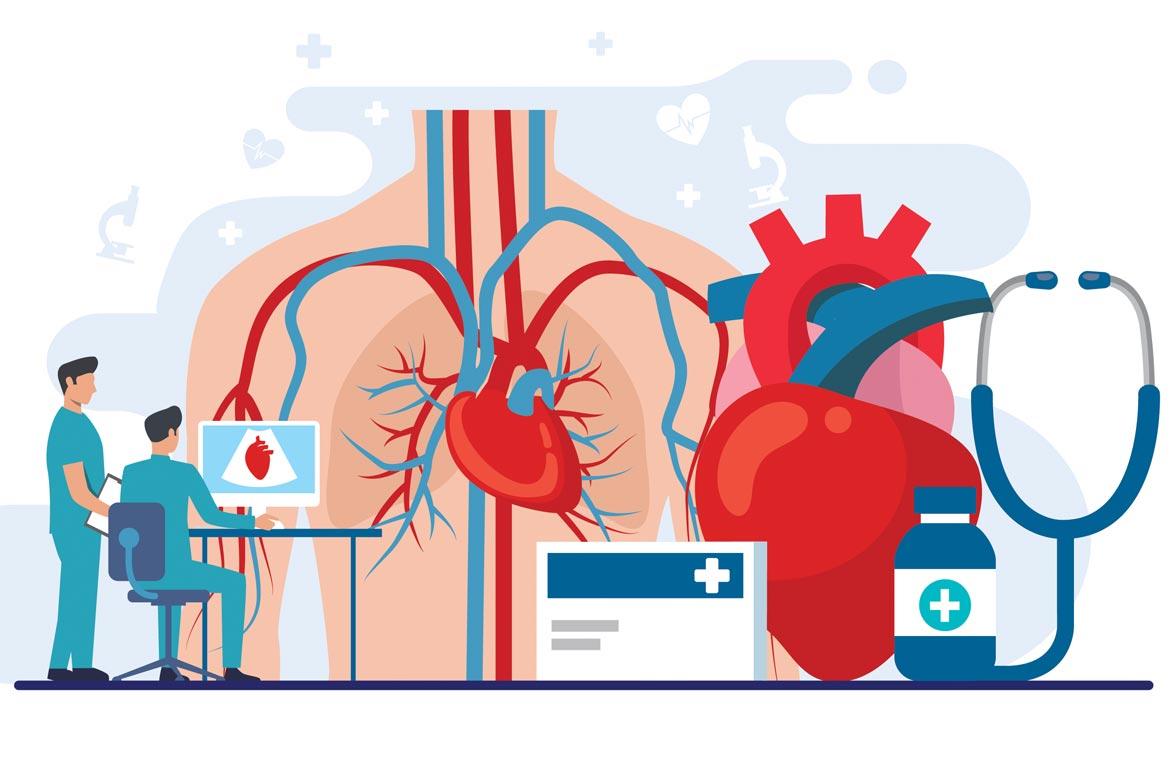-
-
Featured Care Areas

Mitral Regurgitation (MR)
How is mitral regurgitation (MR) diagnosed?
Diagnosis typically involves a combination of clinical evaluation and diagnostic tests:
- Physical examination – A heart murmur may be detected with a stethoscope
- Echocardiogram (transthoracic or transoesophageal) – This is the key imaging test to assess valve function, severity of regurgitation, and heart size
- Electrocardiogram (ECG) – To identify any arrhythmias
- Chest X-ray – To check for heart enlargement or fluid in the lungs
- Cardiac MRI – Provides detailed images of the heart structure and function
- Cardiac catheterisation – In some cases, to assess heart pressures and coronary arteries
How is mitral regurgitation (MR) treated?
Treatment depends on the severity of MR, symptoms, and the underlying cause. Options may include:
Monitoring
For mild or asymptomatic cases, regular monitoring with echocardiography may be sufficient to watch for progression.
Medications
While medicines cannot correct the valve leak, they can help manage symptoms or underlying conditions:
- Diuretics to reduce fluid overload
- Beta-blockers or ACE inhibitors to manage heart failure or high blood pressure
- Anticoagulants if atrial fibrillation is present to reduce stroke risk
Surgical repair or replacement
In cases of severe MR or when symptoms worsen, surgery may be recommended:
- Mitral valve repair – Preserves the patient’s own valve and is often preferred when feasible
- Mitral valve replacement – May be necessary if the valve is too damaged for repair. Options include mechanical or bioprosthetic (animal tissue) valves
Transcatheter edge-to-edge repair (TEER)
For patients who are at high surgical risk, transcatheter edge-to-edge repair (TEER) offers a minimally invasive alternative. This procedure involves placing a clip device, such as MitraClip or PASCAL, via a catheter inserted through a vein to help the mitral valve leaflets close more tightly. TEER can reduce mitral regurgitation and improve symptoms without the need for open-heart surgery.
This coverage checker is brought to you by Health Insured, an online resource that helps you understand your health coverage in Singapore.
This page has been reviewed by our medical content reviewers.
Need help?
For enquiries, please call
+65 6377 3737
For appointment bookings, please WhatsApp
+65 8111 3777








